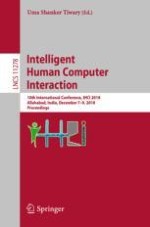2018 | OriginalPaper | Buchkapitel
An Adaptive Cognitive Temporal-Causal Network Model of a Mindfulness Therapy Based on Music
verfasst von : S. Sahand Mohammadi Ziabari, Jan Treur
Erschienen in: Intelligent Human Computer Interaction
Aktivieren Sie unsere intelligente Suche, um passende Fachinhalte oder Patente zu finden.
Wählen Sie Textabschnitte aus um mit Künstlicher Intelligenz passenden Patente zu finden. powered by
Markieren Sie Textabschnitte, um KI-gestützt weitere passende Inhalte zu finden. powered by
